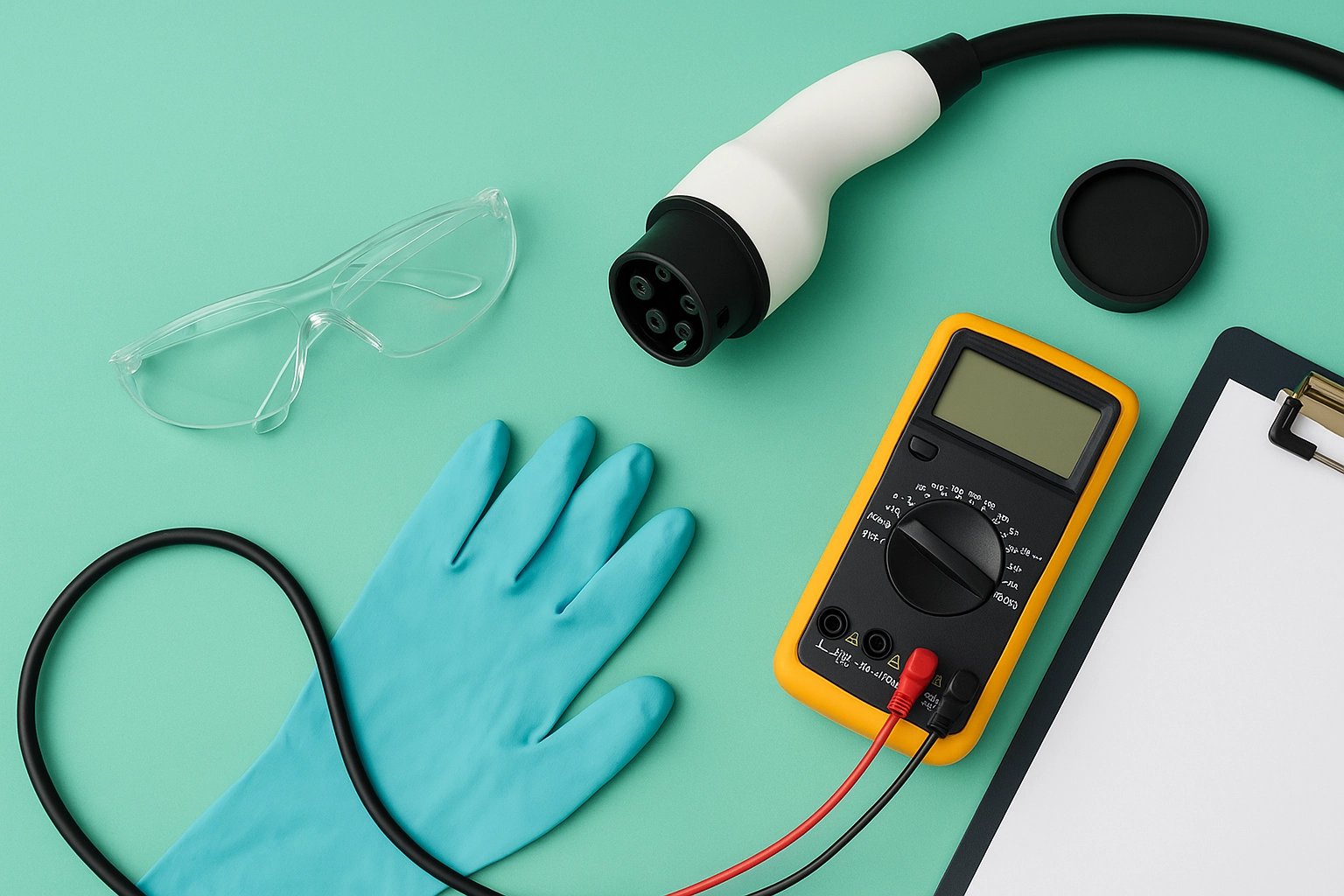ISO 23316 Charging Infrastructure Interoperability Testing
The ISO 23316 standard is pivotal in ensuring seamless interoperability among electric vehicle (EV) charging infrastructure. This standard sets forth the communication protocols that allow different manufacturers' charging systems to interact effectively, enabling a wide range of vehicles to charge safely and efficiently from any compatible station.
Compliance with ISO 23316 is essential for both EV manufacturers and charging infrastructure providers as it ensures that their products can interoperate without issues. This standard covers the communication between the vehicle and the charger, including power supply parameters, operational modes, and safety features. The testing process involves simulating real-world conditions to verify that all components adhere strictly to the specified protocols.
The testing protocol typically starts with a thorough review of the system's compliance with ISO 23316 standards. This includes checking the communication stack, power supply parameters, and operational modes. The charging infrastructure is then subjected to various test scenarios designed to replicate real-world use cases. These scenarios include:
- Initial handshake between the vehicle and the charger
- Power delivery under different conditions (e.g., full load, partial load)
- Emergency stop procedures
- Communication failure recovery mechanisms
During these tests, the charging infrastructure is monitored for any deviations from the ISO 23316 specifications. Any inconsistencies or failures are recorded and analyzed to identify root causes. The testing process also includes validating the safety features of the charging system, such as overcurrent protection and temperature monitoring.
Testing can be conducted in a controlled environment using specialized equipment that simulates various conditions encountered during actual use. This allows for precise control over variables such as voltage, current, and communication signals. The results are then compared against international standards like ISO 23316 to ensure compliance.
The importance of interoperability cannot be overstated in the context of EV charging infrastructure. As more electric vehicles hit the road, it becomes crucial that all systems can work together seamlessly. This not only enhances user experience but also promotes wider adoption of electric vehicles by reducing range anxiety and enhancing convenience.
Eurolab Advantages
Eurolab stands out in the field of ISO 23316 testing due to its comprehensive approach and state-of-the-art facilities. Our team of experts ensures that all tests are conducted with precision and accuracy, providing reliable results every time. We offer a range of services tailored to meet the specific needs of our clients, including:
- Comprehensive ISO 23316 compliance testing
- Expert analysis of test results
- Customized testing protocols for unique requirements
- Support with regulatory submissions and documentation
We pride ourselves on providing a transparent, efficient service that is tailored to the needs of our clients. Our facilities are equipped with advanced instrumentation and software tools that ensure accurate and repeatable results. Additionally, we offer training programs for quality managers and compliance officers to help them understand and implement ISO 23316 effectively.
Our commitment to excellence extends beyond just testing. We work closely with our clients to ensure that they are fully prepared for any regulatory challenges. By leveraging our expertise and resources, we can help our clients stay ahead of the curve in this rapidly evolving market.
Why Choose This Test
Choosing ISO 23316 charging infrastructure interoperability testing is crucial for several reasons. First and foremost, it ensures that your product complies with international standards, which is essential for market entry and customer satisfaction. By adhering to the protocols outlined in ISO 23316, you can guarantee that your charging infrastructure will work seamlessly with a wide range of vehicles.
Moreover, testing helps identify potential issues early on, allowing for necessary adjustments before mass production begins. This not only saves time and resources but also ensures higher quality products that meet the highest safety standards. In addition to these benefits, ISO 23316 compliance can significantly enhance your brand's reputation, demonstrating a commitment to excellence in product development.
For R&D engineers, this testing provides valuable insights into how different components interact within the charging system. This information is crucial for continuous improvement and innovation. For quality managers and compliance officers, it offers assurance that their products meet all necessary regulatory requirements, reducing the risk of non-compliance penalties.
Environmental and Sustainability Contributions
- By ensuring interoperability among different charging stations, ISO 23316 helps reduce the need for multiple types of chargers. This minimizes waste associated with purchasing incompatible devices.
- The standard promotes efficient energy use by facilitating optimal power delivery between vehicles and chargers. This reduces unnecessary consumption and lowers carbon emissions.
- Compliance ensures that all charging stations operate safely, reducing the risk of accidents or malfunctions. Safer infrastructure contributes to a healthier environment overall.
In summary, ISO 23316 testing plays a critical role in supporting sustainable practices within the EV industry by fostering efficient and safe charging solutions that are compatible across various platforms.





